
December 9, 2024
Life Story of Famous People
Short Bio » Politician » Abraham Lincoln


Abraham Lincoln
Abraham Lincoln was the 16th President of the United States of America. He is regarded by many as the most influential president of America. He is known for abolishing slavery from the united states. Lincoln led the nation through the American Civil War, the country’s greatest moral, constitutional, and political crisis. Abraham Lincoln was in office as president from March 4, 1861, to April 15, 1865. John Wilkes Booth assassinated Abraham Lincoln on April 15, 1965.

Early Life:
Abraham Lincoln was born on February 12, 1809, in Hodgenville, Kentucky. He was the second son of Thomas and Nancy Lincoln. He was born into a poor family. His mother died when he was nine years old. He self-educated himself into a lawyer. in 1842, Abraham Lincoln married Mary Todd. They married at Springfield, Illinois. Abraham Lincoln was elected to the U.S. House of Representatives in 1846. He was a member of the Republican party. He started his fight against slavery at the time. He spoke against the Mexican-American War. He served a two-year term as a congressman. After that, he returned to being a lawyer. He again returned to politics only to abolish slavery for good. On November 6, 1860, Abraham Lincoln was elected the 16th president of the United States. He defeated Democrat Stephen A. Douglas, John C. Breckinridge of the Southern Democrats and John Bell of the new Constitutional Union Party. He became the first president of United States from The Republican Party. The American Civil War broke out in 1861. The slave states defected from the United States and declared a war of Abraham Lincoln’s America. He was re-elected as president in 1864 during the war. Abraham Lincoln led the United States to victory in 1865.
A well-known actor John Wilkes Booth assassinated President Abraham Lincoln on April 15, 1865. He was the first American president to be assassinated. James A. Garfield, William McKinley and John F. Kennedy were assassinated after him. Abraham Lincoln was shot while watching the play Our American Cousin. He was with his wife Mary Todd Lincoln at Ford’s Theatre in Washington, D.C. The died the next morning. His tomb is located at Oak Ridge Cemetery in Springfield.
The Lincoln Memorial in Washington DC was built-in Abraham Lincoln’s honor. It holds a colossal statue of Abraham Lincoln sitting in an armchair. The late precedent has been included in a lot of modern-day fiction in Hollywood. Many successful biographical books and movies have been made on Abraham Lincoln. The five-dollar bills have his portrait embedded.
More Info: Wiki | WhiteHouse
Fans Also Viewed

Published in Politician and President

More Celebrities
Abraham Lincoln
President Abraham Lincoln preserved the Union during the American Civil War and issued the Emancipation Proclamation, freeing enslaved people.

Who Was Abraham Lincoln?
Quick facts, early life, parents, and education, how tall was abraham lincoln, wrestling hobby and legal career, wife and children, political career, lincoln and slavery, senate race, u.s. president, civil war begins, emancipation proclamation, gettysburg address, civil war ends and lincoln’s reelection, assassination and funeral, abraham lincoln’s hat, abraham lincoln in movies and tv.
Abraham Lincoln was the 16 th president of the United States , serving from 1861 to 1865, and is regarded as one of America’s greatest heroes due to his roles in guiding the Union through the Civil War and working to emancipate enslaved people. His eloquent support of democracy and insistence that the Union was worth saving embody the ideals of self-government that all nations strive to achieve. In 1863, he issued the Emancipation Proclamation, which freed slaves across the Confederacy. Lincoln’s rise from humble beginnings to achieving the highest office in the land is a remarkable story, and his death is equally notably. He was assassinated by John Wilkes Booth in 1865, at age 56, as the country was slowly beginning to reunify following the war. Lincoln’s distinctively humane personality and incredible impact on the nation have endowed him with an enduring legacy.
FULL NAME: Abraham Lincoln BORN: February 12, 1809 DIED: April 15, 1865 BIRTHPLACE: Hodgenville, Kentucky SPOUSE: Mary Todd Lincoln (m. 1842) CHILDREN: Robert Todd Lincoln , Edward Baker Lincoln, William Wallace Lincoln, and Thomas “Tad” Lincoln ASTROLOGICAL SIGN: Aquarius HEIGHT: 6 feet 4 inches
Abraham Lincoln was born on February 12, 1809, to parents Thomas Lincoln and Nancy Hanks Lincoln in rural Hodgenville, Kentucky.
Thomas was a strong and determined pioneer who found a moderate level of prosperity and was well respected in the community. The couple had two other children: Lincoln’s older sister, Sarah, and younger brother, Thomas, who died in infancy. His death wasn’t the only tragedy the family would endure.
In 1817, the Lincolns were forced to move from young Abraham’s Kentucky birthplace to Perry County, Indiana, due to a land dispute. In Indiana, the family “squatted” on public land to scrap out a living in a crude shelter, hunting game and farming a small plot. Lincoln’s father was eventually able to buy the land.
When Lincoln was 9 years old, his 34-year-old mother died of tremetol, more commonly known as milk sickness, on October 5, 1818. The event was devastating to the young boy, who grew more alienated from his father and quietly resented the hard work placed on him at an early age.
In December 1819, just over a year after his mother’s death, Lincoln’s father Thomas married Sarah Bush Johnston, a Kentucky widow with three children of her own. She was a strong and affectionate woman with whom Lincoln quickly bonded.
Although both his parents were most likely illiterate, Thomas’ new wife Sarah encouraged Lincoln to read. It was while growing into manhood that Lincoln received his formal education—an estimated total of 18 months—a few days or weeks at a time.
Reading material was in short supply in the Indiana wilderness. Neighbors recalled how Lincoln would walk for miles to borrow a book. He undoubtedly read the family Bible and probably other popular books at that time such as Robinson Crusoe, Pilgrim’s Progres s, and Aesop’s Fable s.
In March 1830, the family again migrated, this time to Macon County, Illinois. When his father moved the family again to Coles County, 22-year-old Lincoln struck out on his own, making a living in manual labor.
Lincoln was 6 feet 4 inches tall, rawboned and lanky yet muscular and physically strong. He spoke with a backwoods twang and walked with a long-striding gait. He was known for his skill in wielding an ax and early on made a living splitting wood for fire and rail fencing.
Young Lincoln eventually migrated to the small community of New Salem, Illinois, where over a period of years he worked as a shopkeeper, postmaster, and eventually general store owner. It was through working with the public that Lincoln acquired social skills and honed a storytelling talent that made him popular with the locals.
Not surprising given his imposing frame, Lincoln was an excellent wrestler and had only one recorded loss—to Hank Thompson in 1832—over a span of 12 years. A shopkeeper who employed Lincoln in New Salem, Illinois, reportedly arranged bouts for him as a way to promote the business. Lincoln notably beat a local champion named Jack Armstrong and became somewhat of a hero. (The National Wrestling Hall of Fame posthumously gave Lincoln its Outstanding American Award in 1992.)
When the Black Hawk War broke out in 1832 between the United States and Native Americans, the volunteers in the area elected Lincoln to be their captain. He saw no combat during this time, save for “a good many bloody struggles with the mosquitoes,” but was able to make several important political connections.
As he was starting his political career in the early 1830s, Lincoln decided to become a lawyer. He taught himself the law by reading William Blackstone’s Commentaries on the Laws of England . After being admitted to the bar in 1837, he moved to Springfield, Illinois, and began to practice in the John T. Stuart law firm.
In 1844, Lincoln partnered with William Herndon in the practice of law. Although the two had different jurisprudent styles, they developed a close professional and personal relationship.
Lincoln made a good living in his early years as a lawyer but found that Springfield alone didn’t offer enough work. So to supplement his income, he followed the court as it made its rounds on the circuit to the various county seats in Illinois.
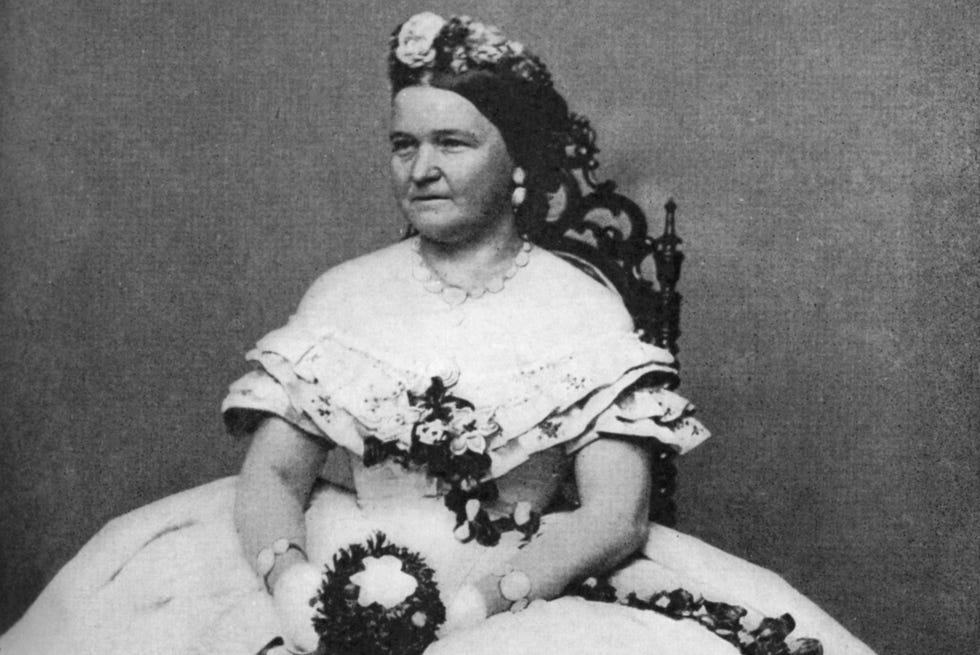
On November 4, 1842, Lincoln wed Mary Todd , a high-spirited, well-educated woman from a distinguished Kentucky family. Although they were married until Lincoln’s death, their relationship had a history of instability.
When the couple became engaged in 1840, many of their friends and family couldn’t understand Mary’s attraction; at times, Lincoln questioned it himself. In 1841, the engagement was suddenly broken off, most likely at Lincoln’s initiative. Mary and Lincoln met later at a social function and eventually did get married.
The couple had four sons— Robert Todd , Edward Baker, William Wallace, and Thomas “Tad”—of whom only Robert survived to adulthood.
Before marrying Todd, Lincoln was involved with other potential matches. Around 1837, he purportedly met and became romantically involved with Anne Rutledge. Before they had a chance to be engaged, a wave of typhoid fever came over New Salem, and Anne died at age 22.
Her death was said to have left Lincoln severely depressed. However, several historians disagree on the extent of Lincoln’s relationship with Rutledge, and his level of sorrow at her death might be more the makings of legend.
About a year after the death of Rutledge, Lincoln courted Mary Owens. The two saw each other for a few months, and marriage was considered. But in time, Lincoln called off the match.
In 1834, Lincoln began his political career and was elected to the Illinois state legislature as a member of the Whig Party . More than a decade later, from 1847 to 1849, he served a single term in the U.S. House of Representatives. His foray into national politics seemed to be as unremarkable as it was brief. He was the lone Whig from Illinois, showing party loyalty but finding few political allies.
As a congressman, Lincoln used his term in office to speak out against the Mexican-American War and supported Zachary Taylor for president in 1848. His criticism of the war made him unpopular back home, and he decided not to run for second term. Instead, he returned to Springfield to practice law.
By the 1850s, the railroad industry was moving west, and Illinois found itself becoming a major hub for various companies. Lincoln served as a lobbyist for the Illinois Central Railroad as its company attorney.
Success in several court cases brought other business clients as well, including banks, insurance companies, and manufacturing firms. Lincoln also worked in some criminal trials.
In one case, a witness claimed that he could identify Lincoln’s client who was accused of murder, because of the intense light from a full moon. Lincoln referred to an almanac and proved that the night in question had been too dark for the witness to see anything clearly. His client was acquitted.
As a member of the Illinois state legislature, Lincoln supported the Whig politics of government-sponsored infrastructure and protective tariffs. This political understanding led him to formulate his early views on slavery, not so much as a moral wrong, but as an impediment to economic development.
In 1854, Congress passed the Kansas-Nebraska Act , which repealed the Missouri Compromise , allowing individual states and territories to decide for themselves whether to allow slavery. The law provoked violent opposition in Kansas and Illinois, and it gave rise to today’s Republican Party .
This awakened Lincoln’s political zeal once again, and his views on slavery moved more toward moral indignation. Lincoln joined the Republican Party in 1856.
In 1857, the Supreme Court issued its controversial Dred Scott decision, declaring Black people were not citizens and had no inherent rights. Although Lincoln felt Black people weren’t equal to whites, he believed America’s founders intended that all men were created with certain inalienable rights.
Lincoln decided to challenge sitting U.S. Senator Stephen Douglas for his seat. In his nomination acceptance speech, he criticized Douglas, the Supreme Court , and President James Buchanan for promoting slavery then declared “a house divided cannot stand.”
During Lincoln’s 1858 U.S. Senate campaign against Douglas, he participated in seven debates held in different cities across Illinois. The two candidates didn’t disappoint, giving stirring debates on issues such as states’ rights and western expansion. But the central issue was slavery.
Newspapers intensely covered the debates, often times with partisan commentary. In the end, the state legislature elected Douglas, but the exposure vaulted Lincoln into national politics.
With his newly enhanced political profile, in 1860, political operatives in Illinois organized a campaign to support Lincoln for the presidency. On May 18, at the Republican National Convention in Chicago, Lincoln surpassed better-known candidates such as William Seward of New York and Salmon P. Chase of Ohio. Lincoln’s nomination was due, in part, to his moderate views on slavery, his support for improving the national infrastructure, and the protective tariff.
In the November 1860 general election, Lincoln faced his friend and rival Stephen Douglas, this time besting him in a four-way race that included John C. Breckinridge of the Northern Democrats and John Bell of the Constitution Party. Lincoln received not quite 40 percent of the popular vote but carried 180 of 303 Electoral College votes, thus winning the U.S. presidency. He grew his trademark beard after his election.
Lincoln’s Cabinet
Following his election to the presidency in 1860, Lincoln selected a strong cabinet composed of many of his political rivals, including William Seward, Salmon P. Chase, Edward Bates, and Edwin Stanton.
Formed out the adage “Hold your friends close and your enemies closer,” Lincoln’s cabinet became one of his strongest assets in his first term in office, and he would need them as the clouds of war gathered over the nation the following year.
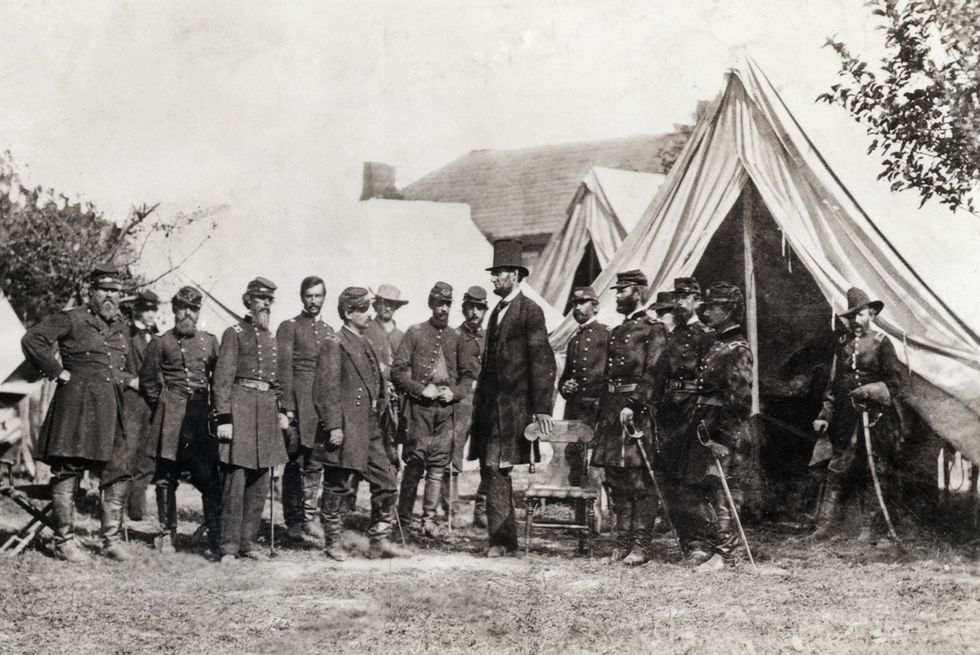
Before Lincoln’s inauguration in March 1861, seven Southern states had seceded from the Union, and by April, the U.S. military installation Fort Sumter was under siege in Charleston Harbor, South Carolina. In the early morning hours of April 12, 1861, the guns stationed to protect the harbor blazed toward the fort, signaling the start of the U.S. Civil War , America’s costliest and bloodiest war.
The newly President Lincoln responded to the crisis wielding powers as no other president before him: He distributed $2 million from the Treasury for war material without an appropriation from Congress; he called for 75,000 volunteers into military service without a declaration of war; and he suspended the writ of habeas corpus, allowing for the arrest and imprisonment of suspected Confederate States sympathizers without a warrant.
Crushing the rebellion would be difficult under any circumstances, but the Civil War, after decades of white-hot partisan politics, was especially onerous. From all directions, Lincoln faced disparagement and defiance. He was often at odds with his generals, his cabinet, his party, and a majority of the American people.
On January 1, 1863, Lincoln delivered his official Emancipation Proclamation , reshaping the cause of the Civil War from saving the Union to abolishing slavery.
The Union Army’s first year and a half of battlefield defeats made it difficult to keep morale high and support strong for a reunification of the nation. And the Union victory at Antietam on September 22, 1862, while by no means conclusive, was hopeful. It gave Lincoln the confidence to officially change the goals of the war. On that same day, he issued a preliminary proclamation that slaves in states rebelling against the Union would be free as of January 1.
The Emancipation Proclamation stated that all individuals who were held as enslaved people in rebellious states “henceforward shall be free.” The action was more symbolic than effective because the North didn’t control any states in rebellion, and the proclamation didn’t apply to border states, Tennessee, or some Louisiana parishes.
As a result, the Union army shared the Proclamation’s mandate only after it had taken control of Confederate territory. In the far reaches of western Texas, that day finally came on June 19, 1865—more than two and a half years after the Emancipation Proclamation took effect. For decades, many Black Americans have celebrated this anniversary, known as Juneteenth or Emancipation Day, and in 2021, President Joe Biden made Juneteenth a national holiday.
Still, the Emancipation Proclamation did have some immediate impact. It permitted Black Americans to serve in the Union Army for the first time, which contributed to the eventual Union victory. The historic declaration also paved the way for the passage of the 13 th Amendment that ended legal slavery in the United States.
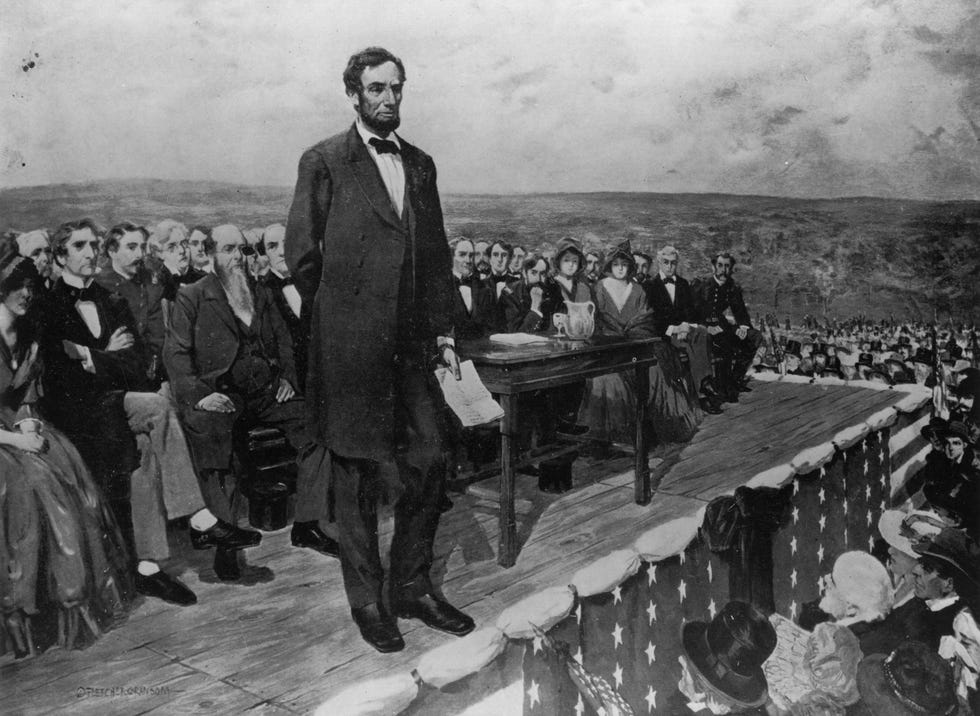
On November 19, 1863, Lincoln delivered what would become his most famous speech and one of the most important speeches in American history: the Gettysburg Address .
Addressing a crowd of around 15,000 people, Lincoln delivered his 272-word speech at one of the bloodiest battlefields of the Civil War, the Gettysburg National Cemetery in Pennsylvania. The Civil War, Lincoln said, was the ultimate test of the preservation of the Union created in 1776, and the people who died at Gettysburg fought to uphold this cause.
Lincoln evoked the Declaration of Independence , saying it was up to the living to ensure that the “government of the people, by the people, for the people, shall not perish from the earth,” and this Union was “dedicated to the proposition that all men are created equal.”
A common interpretation was that the president was expanding the cause of the Civil War from simply reunifying the Union to also fighting for equality and abolishing slavery.
Following Lincoln’s Emancipation Proclamation in 1863, the war effort gradually improved for the North, though more by attrition than by brilliant military victories.
But by 1864, the Confederate armies had eluded major defeat and Lincoln was convinced he’d be a one-term president. His nemesis George B. McClellan , the former commander of the Army of the Potomac, challenged him for the presidency, but the contest wasn’t even close. Lincoln received 55 percent of the popular vote and 212 of 243 electoral votes.
On April 9, 1865, General Robert E. Lee , commander of the Army of Virginia, surrendered his forces to Union General Ulysses S. Grant . The Civil War was for all intents and purposes over.
Reconstruction had already began during the Civil War, as early as 1863 in areas firmly under Union military control, and Lincoln favored a policy of quick reunification with a minimum of retribution. He was confronted by a radical group of Republicans in Congress that wanted complete allegiance and repentance from former Confederates. Before a political debate had any chance to firmly develop, Lincoln was killed.
Lincoln was assassinated on April 14, 1865, by well-known actor and Confederate sympathizer John Wilkes Booth at Ford’s Theatre in Washington. Lincoln was taken to the Petersen House across the street and laid in a coma for nine hours before dying the next morning. He was 56. His death was mourned by millions of citizens in the North and South alike.
Lincoln’s body first lay in state at the U. S. Capitol. About 600 invited guests attended a funeral in the East Room of the White House on April 19, though an inconsolable Mary Todd Lincoln wasn’t present.
His body was transported to his final resting place in Springfield, Illinois, by a funeral train. Newspapers publicized the schedule of the train, which made stops along various cities that played roles in Lincoln’s path to Washington. In 10 cities, the casket was removed and placed in public for memorial services. Lincoln was finally placed in a tomb on May 4.
On the day of Lincoln’s death, Andrew Johnson was sworn in as the 17 th president at the Kirkwood House hotel in Washington.
Lincoln, already taller than most, is known for his distinctive top hats. Although it’s unclear when he began wearing them, historians believe he likely chose the style as a gimmick.
He wore a top hat to Ford’s Theatre on the night of his assassination. Following his death, the War Department preserved the hat until 1867 when, with Mary Todd Lincoln’s approval, it was transferred to the Patent Office and the Smithsonian Institution. Worried about the commotion it might cause, the Smithsonian stored the hat in a basement instead of putting it on display. It was finally exhibited in 1893, and it’s now one of the Institution’s most treasured items.
Lincoln is frequently cited by historians and average citizens alike as America’s greatest president. An aggressively activist commander-in-chief, Lincoln used every power at his disposal to assure victory in the Civil War and end slavery in the United States.
Some scholars doubt that the Union would have been preserved had another person of lesser character been in the White House. According to historian Michael Burlingame , “No president in American history ever faced a greater crisis and no president ever accomplished as much.”
Lincoln’s philosophy was perhaps best summed up in his Second Inaugural Address , when he stated, “With malice toward none, with charity for all, with firmness in the right as God gives us to see the right, let us strive on to finish the work we are in, to bind up the nation’s wounds, to care for him who shall have borne the battle and for his widow and his orphan, to do all which may achieve and cherish a just and lasting peace among ourselves and with all nations.”
The Lincoln Memorial
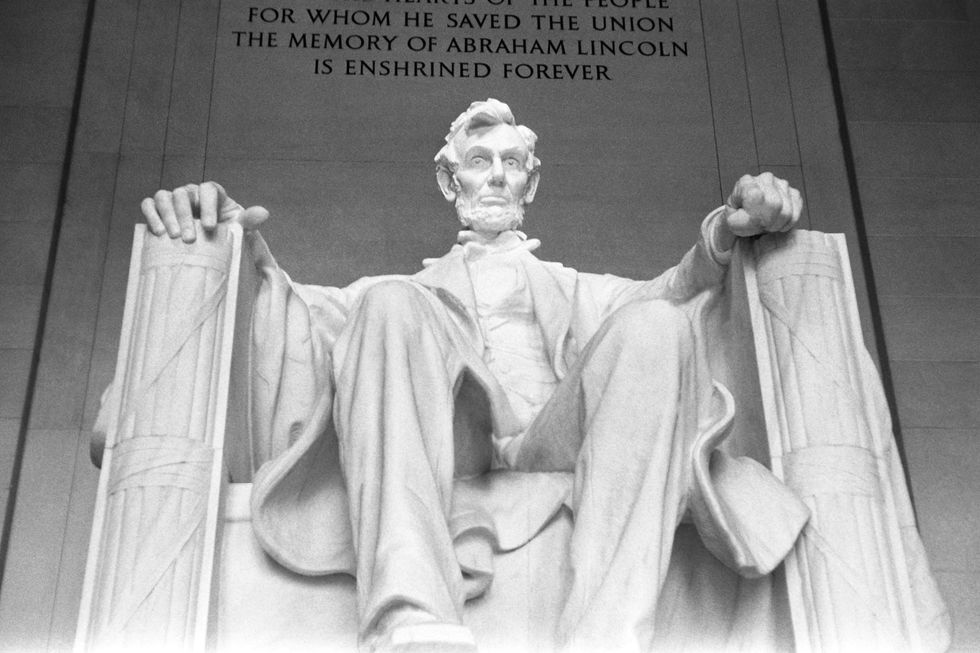
Since its dedication in 1922, the Lincoln Memorial in Washington has honored the president’s legacy. Inspired by the Greek Parthenon, the monument features a 19-foot high statue of Lincoln and engravings of the Gettysburg Address and Lincoln’s Second Inaugural Address. Former President William Howard Taft served as chair of the Lincoln Memorial Commission, which oversaw its design and construction.
The monument is the most visited in the city, attracting around 8 million people per year. Civil rights icon Martin Luther King Jr. delivered his famous “I Have a Dream” speech on the memorial’s steps in 1963.
Lincoln has been the subject of numerous films about his life and presidency, rooted in both realism and absurdity.
Among the earlier films featuring the former president is Young Mr. Lincoln (1939), which stars Henry Fonda and focuses on Lincoln’s early life and law career. A year later, Abe Lincoln in Illinois gave a dramatized account of Lincoln’s life after leaving Kentucky.
The most notable modern film is Lincoln , the 2012 biographical drama directed by Steven Spielberg and starring Daniel Day-Lewis as Lincoln and Sally Field as his wife, Mary Todd Lincoln . Day-Lewis won the Academy Award for Best Actor for his performance, and the film was nominated for Best Picture.
A more fantastical depiction of Lincoln came in the 1989 comedy film Bill and Ted’s Excellent Adventure , in which the titular characters played by Keanu Reeves and Alex Winter travel back in time for the president’s help in completing their high school history report. Lincoln gives the memorable instruction to “be excellent to each other and... party on, dudes!”
Another example is the 2012 action film Abraham Lincoln: Vampire Hunter , based on a 2010 novel by Seth Grahame-Smith. Benjamin Walker plays Lincoln, who leads a secret double life hunting the immortal creatures and even fighting them during the Civil War.
Lincoln’s role during the Civil War is heavily explored in the 1990 Ken Burns documentary The Civil War , which won two Emmy Awards and two Grammys. In 2022, the History Channel aired a three-part docuseries about his life simply titled Abraham Lincoln .
- Those who deny freedom to others deserve it not for themselves.
- I claim not to have controlled events, but confess plainly that events have controlled me.
- No man is good enough to govern another man, without that other ’ s consent.
- I have learned the value of old friends by making many new ones.
- Government of the people, by the people, for the people, shall not perish from the earth.
- Whenever I hear anyone arguing over slavery, I feel a strong impulse to see it tried on him personally.
- To give the victory to the right, not bloody bullets, but peaceful ballots only, are necessary.
- Our defense is in the preservation of the spirit which prizes liberty as the heritage of all men, in all lands, everywhere. Destroy this spirit, and you have planted the seeds of despotism around your own doors.
- Don ’ t interfere with anything in the Constitution. That must be maintained, for it is the only safeguard of our liberties.
- Always bear in mind that your own resolution to succeed is more important than any other one thing.
- With malice toward none; with charity for all; with firmness in the right, as God gives us to see the right, let us strive on to finish the work we are in; to bind up the nation ’ s wounds; to care for him who shall have borne the battle, and for his widow, and his orphan—to do all which may achieve and cherish a just and lasting peace, among ourselves, and with all nations.
- I walk slowly, but I never walk backward.
- Nearly all men can handle adversity, if you want to test a man’s character, give him power.
- I ’ m the big buck of this lick. If any of you want to try it, come on and whet your horns.
- We can complain because rose bushes have thorns.
- Am I not destroying my enemies when I make friends of them?
- It is better to remain silent and be thought a fool than to open one’s mouth and remove all doubt.
Fact Check: We strive for accuracy and fairness. If you see something that doesn’t look right, contact us !
The Biography.com staff is a team of people-obsessed and news-hungry editors with decades of collective experience. We have worked as daily newspaper reporters, major national magazine editors, and as editors-in-chief of regional media publications. Among our ranks are book authors and award-winning journalists. Our staff also works with freelance writers, researchers, and other contributors to produce the smart, compelling profiles and articles you see on our site. To meet the team, visit our About Us page: https://www.biography.com/about/a43602329/about-us
Tyler Piccotti joined the Biography.com staff as an Associate News Editor and is now the News and Culture Editor. He previously worked as a reporter and copy editor for a daily newspaper recognized by the Associated Press Sports Editors. In his current role, he shares the true stories behind your favorite movies and TV shows and profiles rising musicians, actors, and athletes. When he's not working, you can find him at the nearest amusement park or movie theater and cheering on his favorite teams.
Civil War Figures
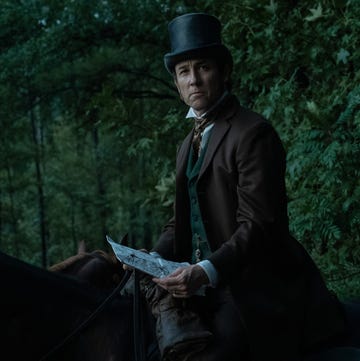
The Manhunt for John Wilkes Booth
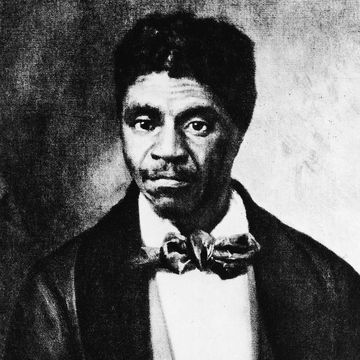
The 13 Most Cunning Military Leaders
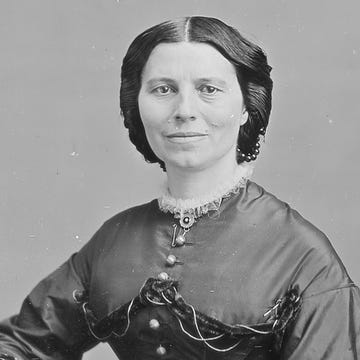
Clara Barton
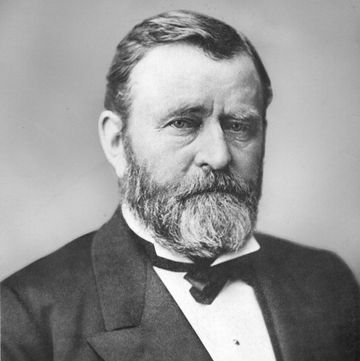
The Story of President Ulysses S. Grant’s Arrest
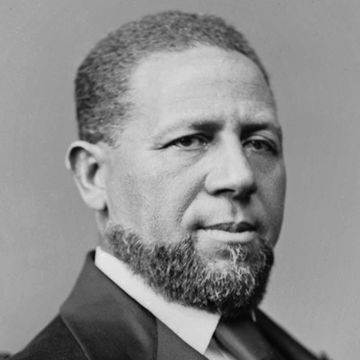
Hiram R. Revels
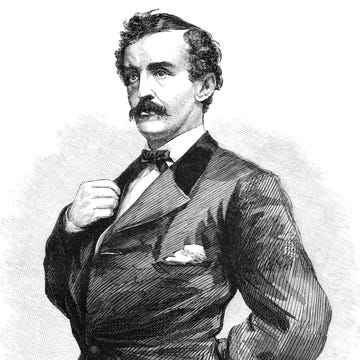
John Wilkes Booth
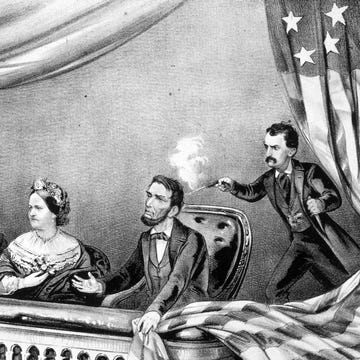
The Final Days of Abraham Lincoln
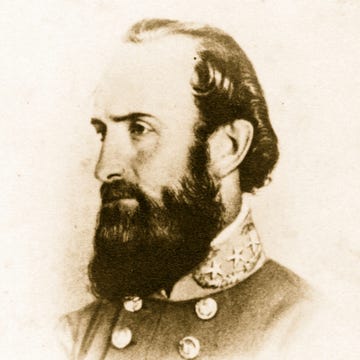
Stonewall Jackson
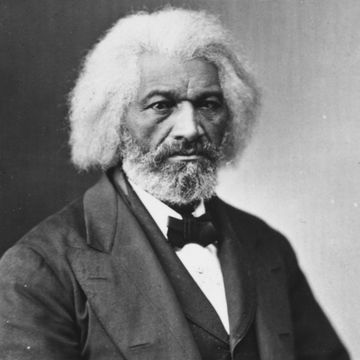
Frederick Douglass
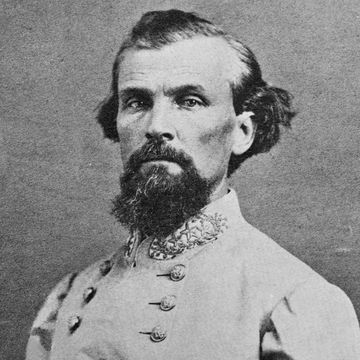
Nathan Bedford Forrest
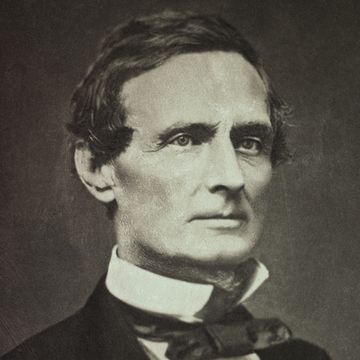
Jefferson Davis
Help inform the discussion
- X (Twitter)

Abraham Lincoln: Life in Brief
When Abraham Lincoln was elected President in 1860, seven slave states left the Union to form the Confederate States of America, and four more joined when hostilities began between the North and South. A bloody civil war then engulfed the nation as Lincoln vowed to preserve the Union, enforce the laws of the United States, and end the secession. The war lasted for more than four years with a staggering loss of more than 600,000 Americans dead. Midway through the war, Lincoln issued the Emancipation Proclamation, which freed all slaves within the Confederacy and changed the war from a battle to preserve the Union into a battle for freedom. He was the first Republican President, and Union victory ended forever the claim that state sovereignty superseded federal authority. Killed by an assassin's bullet less than a week after the surrender of Confederate forces, Lincoln left the nation a more perfect Union and thereby earned the admiration of most Americans as the country's greatest President.
Born dirt-poor in a log cabin in Kentucky in 1809, Lincoln grew up in frontier Kentucky and Indiana, where he was largely self-educated, with a taste for jokes, hard work, and books. He served for a time as a soldier in the Black Hawk War, taught himself law, and held a seat in the Illinois state legislature as a Whig politician in the 1830s and 1840s. From state politics, he moved to the U.S. House of Representatives in 1847, where he voiced his opposition to the U.S. war with Mexico. In the mid-1850s, Lincoln left the Whig Party to join the new Republican Party. In 1858, he went up against one of the most popular politicians in the nation, Senator Stephen Douglas, in a contest for the U.S. Senate. Lincoln lost that election, but his spectacular performance against Douglas in a series of nationally covered debates made him a contender for the 1860 Republican presidential nomination.
Fighting for Unity and Freedom
In the 1860 campaign for President, Lincoln firmly expressed his opposition to slavery and his determination to limit the expansion of slavery westward into the new territories acquired from Mexico in 1850. His election victory created a crisis for the nation, as many Southern Democrats feared that it would just be a matter of time before Lincoln would move to kill slavery in the South. Rather than face a future in which black people might become free citizens, much of the white South supported secession. This reasoning was based upon the doctrine of states' rights, which placed ultimate sovereignty with the states.
Lincoln vowed to preserve the Union even if it meant war. He eventually raised an army and navy of nearly three million Northern men to face a Southern army of more than two million soldiers. In battles fought from Virginia to California (but mainly in Virginia, in the Mississippi River Valley, and along the border states) a great civil war tore the United States apart. In pursuing victory, Lincoln assumed extralegal powers over the press, declared martial law in areas where no military action justified it, quelled draft riots with armed soldiers, and drafted soldiers to fight for the Union cause. No President in history had ever exerted so much executive authority, but he did so not for personal power but in order to preserve the Union. In 1864, as an example of his limited personal ambitions, Lincoln refused to call off national elections, preferring to hold the election even if he lost the vote rather than destroy the democratic basis upon which he rested his authority. With the electoral support of Union soldiers, many of whom were given short leaves to return home to vote, and thanks to the spectacular victory of Union troops in General Sherman's capture of Atlanta, Lincoln was decisively reelected.
What started as a war to preserve the Union and vindicate democracy became a battle for freedom and a war to end slavery when Lincoln issued the Emancipation Proclamation in January of 1863. Although the Proclamation did not free all slaves in the nation—indeed, no slaves outside of the Confederacy were affected by the Proclamation—it was an important symbolic gesture that identified the Union with freedom and the death of slavery. As part of the Proclamation, Lincoln also urged black males to join the Union forces as soldiers and sailors. By the end of the war, nearly two hundred thousand African Americans had fought for the Union cause, and Lincoln referred to them as indispensable in ensuring Union victory.
Personal Tragedies and Triumphs
While the war raged, Lincoln also suffered great personal anguish over the death of his beloved son and the depressed mental condition of his wife, Mary. The pain of war and personal loss affected him deeply, and he often expressed his anguish by turning to humor and by speaking eloquently about the meaning of the great war which raged across the land. His Gettysburg Address, delivered after the Battle of Gettysburg, as well as his second inaugural in 1865, are acknowledged to be among the great orations in American history.
Almost all historians judge Lincoln as the greatest President in American history because of the way he exercised leadership during the war and because of the impact of that leadership on the moral and political character of the nation. He conceived of his presidential role as unique under the Constitution in times of crisis. Lincoln was convinced that within the branches of government, the presidency alone was empowered not only to uphold the Constitution, but also to preserve, protect, and defend it. In the end, however, Lincoln is measured by his most lasting accomplishments: the preservation of the Union, the vindication of democracy, and the death of slavery—accomplishments achieved by acting "with malice towards none" in the pursuit of a more perfect and equal union.
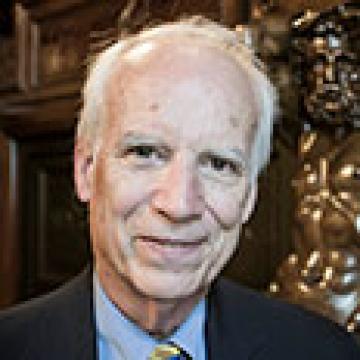
Michael Burlingame
Professor Emeritus of History Connecticut College
More Resources
Abraham lincoln presidency page, abraham lincoln essays, life in brief (current essay), life before the presidency, campaigns and elections, domestic affairs, foreign affairs, death of the president, family life, the american franchise, impact and legacy.
Biography Online

Abraham Lincoln Biography | Quotes | Facts
“With malice toward none; with charity for all; with firmness in the right, as God gives us to see the right, let us strive on to finish the work we are in; to bind up the nation’s wounds…. ”
– Abraham Lincoln
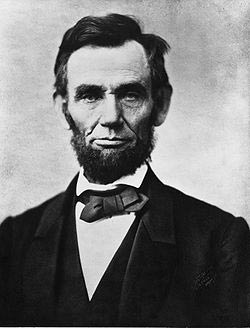
“If I were two-faced, would I be wearing this one?”
Work colleagues and friends noted that Lincoln had a capacity to defuse tense and argumentative situations, though the use of humour and his capacity to take an optimistic view of human nature. He loved to tell stories to illustrate a serious point through the use of humour and parables.
Lincoln was shy around women but after a difficult courtship, he married Mary Todd in 1842. Mary Todd shared many of her husband’s political thinking but they also had different temperaments – with Mary more prone to swings in her emotions. They had four children, who Lincoln was devoted to. Although three died before reaching maturity – which caused much grief to both parents.
As a lawyer, Abraham developed a capacity for quick thinking and oratory. His interest in public issues encouraged him to stand for public office. In 1847, he was elected to the House of Representatives for Illinois and served from 1847-49. During his period in Congress, Lincoln criticised President Folk’s handling of the American-Mexican War, arguing Polk used patriotism and military glory to defend the unjust action of taking Mexican territory. However, Lincoln’s stance was politically unpopular and he was not re-elected.
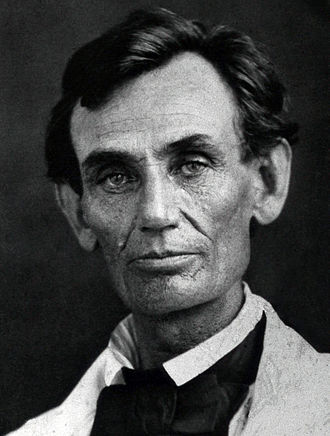
He gave influential speeches, which drew on the Declaration of Independence to prove the Founding Fathers had intended to stop the spread of slavery. In particular, Lincoln used a novel argument that although society was a long way from equality, America should aspire towards the lofty statement in the Declaration of Independence.
“We hold these truths to be self-evident: That all men are created equal”
Lincoln had a strong capacity for empathy. He would try to see problems from everyone’s point of view – including southern slaveholders. He used this concept of empathy to speak against slavery.
“I have always thought that all men should be free; but if any should be slaves, it should be first those who desire it for themselves, and secondly, those who desire it for others. When I hear anyone arguing for slavery, I feel a strong impulse to see it tried on him personally.”
Lincoln’s speeches were notable because they drew on both legal precedents but also easy to understand parables, which struck a chord with the public.
In 1858, Lincoln was nominated as Republican candidate for the Senate. He undertook a series of high-profile debates with the Democratic incumbent Stephen Douglass. Douglass was in favour of allowing the extension of slavery – if citizens voted for it. Lincoln opposed the extension of slavery. During this campaign, he gave one of his best-remembered speeches, which reflected on the divisive nature of America.
“A house divided against itself cannot stand. I believe this government cannot endure, permanently, half slave and half free. I do not expect the Union to be dissolved — I do not expect the house to fall — but I do expect it will cease to be divided. It will become all one thing or all the other. ” ( House Divided )
In this House Divided speech, Lincoln gave a prophetic utterance to the potential for slavery to divide the nation.
Although he lost this 1858 Senate election, his debating skills and oratory caused him to become well known within the Republican party.
On February 27, 1860. Lincoln was also invited to give a notable address at Cooper Union in New York. The East Coast was relatively new territory for Lincoln; many in the audience thought his appearance awkward and even ugly, but his calls for moral clarity over the wrongness of slavery struck a chord with his East coast audience.
“Let us have faith that right makes might, and in that faith, let us, to the end, dare to do our duty as we understand it.” (Cooper Union address)
The reputation he gained on the campaign trail and speeches on the East coast caused him to be put forward as a candidate for the Republican nominee for President in 1860. Lincoln was an outsider because he had much less experience than other leading candidates such as Steward, Bates and Chase, but after finishing second on the first ballot he went on to become unexpectedly nominated.
After a hard-fought, divisive campaign of 1860, Lincoln was elected the first Republican President of the United States. Lincoln’s support came entirely from the North and West of the country. The south strongly disagreed with Lincoln’s position on slavery
The election of Lincoln as President in 1861, sparked the South to secede from the North. Southern independence sentiment had been growing for many years, and the election of a president opposed to slavery was the final straw. However, Lincoln resolutely opposed the breakaway of the South, and this led to the American civil war with Lincoln committed to preserving the Union.
Lincoln surprised many by including in his cabinet the main rivals from the 1860 Republican campaign. It demonstrated Lincoln’s willingness and ability to work with people of different political and personal approaches. This helped to keep the Republican party together.
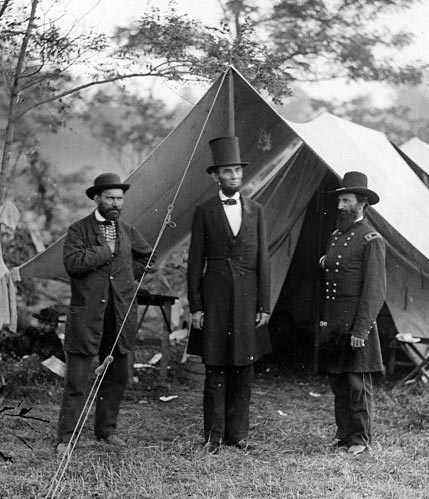
Initially, the war was primarily about the secession of southern states and the survival of the Union, but as the war progressed, Lincoln increasingly made the issue of ending slavery paramount.
On September 22, 1862, Lincoln issued the Emancipation Proclamation that declared the freedom of slaves within the Confederacy.
“… all persons held as slaves within any State or designated part of a State, the people whereof shall then be in rebellion against the United States, shall be then, thenceforward, and forever free” ( Emancipation Proclamation )
The Proclamation came into force on January 1, 1863. Towards the end of the year, many black regiments were raised to help the Union army.
Gettysburg address
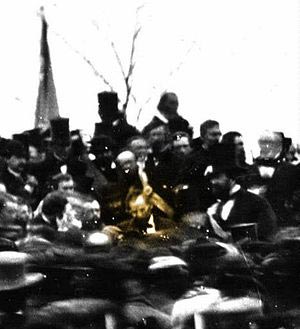
After a difficult opening two years, by 1863, the tide of war started to swing towards the Union forces – helped by the victory at the Battle of Gettysburg in July 1863. Lincoln felt able to redefine the goals of the civil war to include the ending of slavery.
Dedicating the ceremony at Gettysburg on November 19, 1863, Lincoln declared:
“Four score and seven years ago our fathers brought forth on this continent, a new nation, conceived in Liberty, and dedicated to the proposition that all men are created equal. … that we here highly resolve that these dead shall not have died in vain — that this nation, under God, shall have a new birth of freedom — and that government of the people, by the people, for the people, shall not perish from the earth.”
Abraham Lincoln, Gettysburg Address November 19, 1863
Eventually, after four years of attrition, the Federal forces secured the surrender of the defeated south. The union had been saved and the issue of slavery had been brought to a head.
After the Civil War
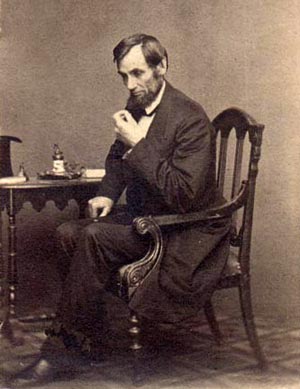
Lincoln 1862
In the aftermath of the civil war, Lincoln sought to reunite the country – offering a generous settlement to the south. When asked how to deal with the southern states, Lincoln replied. “Let ’em up easy.” Lincoln was opposed by more radical factions who wanted greater activism in the south to ensure civil rights for freed slaves.
On January 31, 1865, Lincoln helped pass through Congress a bill to outlaw slavery. The Thirteenth Amendment to the United States Constitution was officially signed into law on December 6, 1865.
Some northern abolitionists and Republicans wanted Lincoln to go further and implement full racial equality on issues of education and voting rights. Lincoln was unwilling to do this (it was a minority political view for the time) Frederick Douglass , a leading black activist (who had escaped from slavery) didn’t always agree with the policies of Lincoln but after meeting Lincoln, he said enthusiastically of the President.
“He treated me as a man; he did not let me feel for a moment that there was any difference in the color of our skins! The President is a most remarkable man. I am satisfied now that he is doing all that circumstances will permit him to do.”
Assassination
Five days after the surrender of Robert E. Lee and the Confederate Army, Lincoln was assassinated by John Wilkes Booth while visiting Ford’s Theatre. Lincoln’s death was widely mourned across the country.
Lincoln is widely regarded as one of America’s most influential and important presidents. As well as saving the Union and promoting Republican values, Lincoln was viewed as embodying the ideals of honesty and integrity.
“Posterity will call you the great emancipator, a more enviable title than any crown could be, and greater than any merely mundane treasure.”
– Giuseppe Garibaldi , 6 August 1863.
“Five score years ago, a great American, in whose symbolic shadow we stand today, signed the Emancipation Proclamation. This momentous decree came as a great beacon light of hope to millions of Negro slaves who had been seared in the flames of withering injustice. It came as a joyous daybreak to end the long night of their captivity.”
Martin Luther King Jr ., “I Have a Dream” speech (28 August 1963), at the Lincoln Memorial
Citation: Pettinger, Tejvan . “Abraham Lincoln Biography ”, Oxford, UK. www.biographyonline.net , 11th Feb 2013. Updated 21st February 2018.
Lincoln – by David Herbert Donald

Lincoln – David Herbert Donald at Amazon
A. Lincoln – a Biography
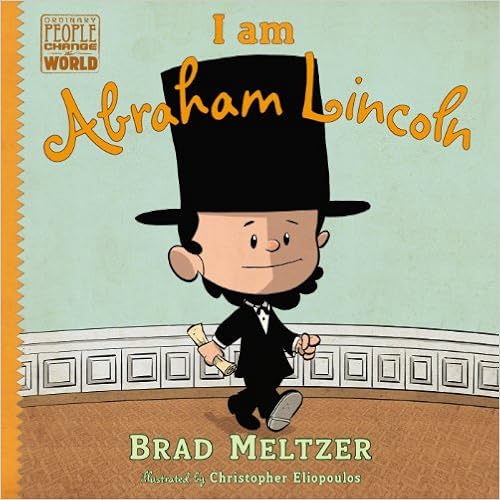
I am Abraham Lincoln by Brad Meltzer at Amazon
Related pages

- People who overcame difficult odds
- Speeches that changed the world
- 100 People who changed the World
External links
- Abraham Lincoln at Congress Guide
- Abraham Lincoln bio

IMAGES
VIDEO
COMMENTS
Short Bio » Politician » Abraham Lincoln. Abraham Lincoln. February 12, 2023. ... Abraham Lincoln was born on February 12, 1809, in Hodgenville, Kentucky. He was the second son of Thomas and Nancy Lincoln. He was born into a poor family. His mother died when he was nine years old. He self-educated himself into a lawyer. in 1842, Abraham ...
Abraham Lincoln's chief goal in the American Civil War was to preserve the Union. At the outset of the war, he would have done so at any cost, including by allowing slavery to continue. But abolishing slavery would become a nonnegotiable objective for him as the war progressed because of his own long-expressed abhorrence for the practice and because of the growing antislavery sentiment among ...
1809-1865 Who Was Abraham Lincoln? Abraham Lincoln was the 16 th president of the United States, serving from 1861 to 1865, and is regarded as one of America's greatest heroes due to his roles ...
Short Biography of Abraham Lincoln: Fast Overview of his Life Facts and Info: Abraham Lincoln was the 16th president of America who led the Union into the American Civil war (1861-1865) to preserve the nation and end slavery. He was assassinated five days after the Confederate armies surrendered.
Abraham Lincoln (/ ˈ l ɪ ŋ k ən / LINK-ən; February 12, 1809 - April 15, 1865) was the 16th president of the United States, serving from 1861 until his assassination in 1865. He led the United States through the American Civil War, defending the nation as a constitutional union, defeating the Confederacy, playing a major role in the abolition of slavery, expanding the power of the ...
When Abraham Lincoln was elected President in 1860, seven slave states left the Union to form the Confederate States of America, and four more joined when hostilities began between the North and South. A bloody civil war then engulfed the nation as Lincoln vowed to preserve the Union, enforce the laws of the United States, and end the secession.
Abraham Lincoln was the 16th President of the United States. Learn about his biography, the Civil War, and his life story. ... Today, Lincoln is often remembered for a short speech he gave at Gettysburg on November 19, 1863. It's called the Gettysburg Address. It was only a few minutes long, but is considered one of the great speeches in ...
Abraham Lincoln Biography | Quotes | Facts "With malice toward none; with charity for all; with firmness in the right, as God gives us to see the right, let us strive on to finish the work we are in; to bind up the nation's wounds…. " - Abraham Lincoln. Abraham Lincoln was born Feb 12, 1809, in a single-room log cabin, Hardin County ...
Lincoln served as president and commander-in-chief throughout most of the conflict before an assassin's bullet tragically cut his life short on April 15, 1865. On March 4, 1861, Abraham Lincoln became the 16th President of the United States.
1. INTRODUCTION. Abraham Lincoln (1809-1865) was an American politician and lawyer known for: Be the 16th president of the United States of America. Lead the United States during the Civil War avoiding the disintegration of the nation. Abolish slavery and modernize the country's economy. 2. ABRAHAM LINCOLN BIOGRAPHY. Abraham Lincoln was born on February 12, 1809 in Kentucky, United States.